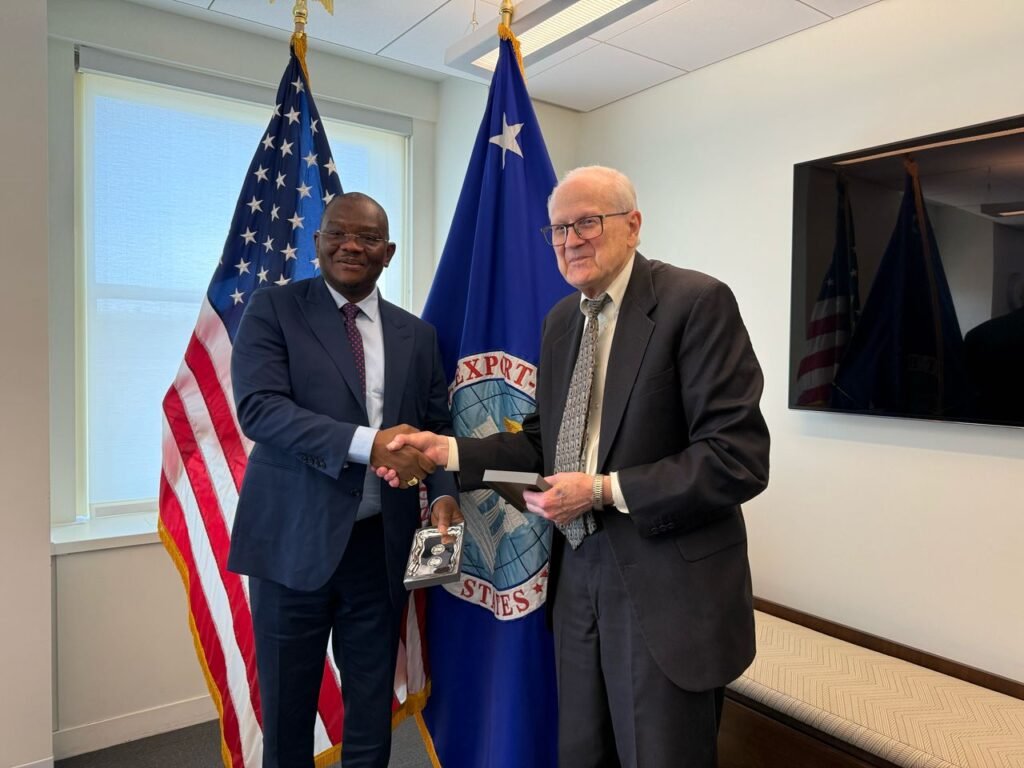Hot!
‘Economic, relationship crises can trigger mental disorders’

Depressed individuals are at a higher risk of having serious mental disorders if things go worse, Dr. Richard Eghan of Nature’s Green Medical Centre has disclosed.
According to the Medical Practitioner, mental health disorders are more prevalent in our current dispensation due to issues ranging from economic, family, and relationship crises among others.
Dr Eghan said that persons “who have any of the conditions or symptoms of having mental health problems of any form need to seek help or timely psychological, psychiatric or medical intervention from an expert.”
The CEO of Nature’s Green Medical Centre at Taifa in Accra indicated that it was important for individuals living in a sound state of mind to constantly preserve their mental well-being to avoid any form of future mental disorders.
In an interview with The Spectator last week, he said “most mental health disorders are treatable, but required one to seek help if any state of abnormalities begins to show up.”
He cautioned persons living with or in close proximity with people with mental health problems to take safety and precautionary measures in their encounter with such individuals and must treat them in a welcoming way which would not lead to stigmatisation.
The Public Health Scientist said some persons living with serious mental and psychological health disorder could live a normal life in their daily day-to-day life encounter without any evidence or symptoms of abnormalities but could easily cause harm to an individual and treat them with respect to avoid stigmatisation.
“Imagine having a wife, girlfriend, husband or boyfriend who has serious depression or personality disorder whose symptoms could go out of control one day and bring serious harm to your life, yet the person seems normal to you because they have not shown any sign of aggression or violence towards you,” Dr. Eghan said.
He lamented that in Ghana, because much attention was not paid to mental health conditions and victims of mental health disorders, mental health patients may continue to suffer the symptoms of their conditions until they became completely insane.
“The world is sitting on a ‘time bomb’ with mental health problems as the level of mental health issues keep soaring on a daily basis especially during this global COVID-19 pandemic period”, he stressed.
According to a global health statistics, about 792 million people lived with mental health disorder of some kind translating to 10.7 per cent of global population.
Dr. Eghan said those with living anxiety constituted 384 million people, representing 3.8 per cent of the population while depression accounted for 264 million people which is about 3.4 per cent of the population.
He said a data published also estimated that mental disorders are attributable to 14.3 per cent of death worldwide or approximately eight million deaths each year.
Mr. Nicholas Nartey, a mental health advocate who produced an award winning film titled “KORO” underscored the need for recovered mental health patients who have undergone treatment and are living a normal life in society not to be stigmatised.
By Alfred Nii Arday Ankrah
Hot!
GEXIM deepens relations with US EXIM Bank

A management team of the Ghana Export – Import Bank (GEXIM) led by the Acting Chief Executive, Sylvester Mensah met with the leadership of the Export–Import Bank of the United States (US EXIM) on Wednesday April 23, 2025 in Washington DC, United States of America.
The Acting President and Chairman of US EXIM, Mr. James C. Cruse and Vice President, International Relations, Ms. Isabel Galdiz received the GEXIM delegation, which included Deputy CEO for Banking, Mr. Moses Klu Mensah and Head of International Cooperation, Mr. Jonathan Christopher Koney at the headquarters of US EXIM.

The meeting offered the GEXIM team the opportunity to share the strategic direction of the Bank in line with the resetting agenda of the President of the Republic, His Excellency John Dramani Mahama for the repositioning of the Ghanaian economy into an export-led one by providing the requisite investment to Ghanaian businesses.
Mr. James C. Cruse expressed US EXIM’s eagerness to deepen its existing relations with GEXIM and proposed the signing of a new Cooperative Framework Agreement following the expiration of a Memorandum of Understanding signed in 2019 to utilize US EXIM’s medium term loan guarantees to procure machinery by GEXIM for qualified Ghanaian Small and Medium-sized Enterprises (SMEs).
Mr.Sylvester Mensah thanked the Acting President and Chairman of US EXIM for hosting the GEXIM delegation and reaffirmed the Ghanaian government’s commitment to strengthening trade and investment between Ghana and its global partners for economic transformation of Ghana with GEXIM playing a pivotal role.
The two teams will be meeting on the sidelines of the 2025 US EXIM Annual Conference on 29th and April 30, 2025 to explore possible areas of collaboration and matching Ghanaian businesses to American companies. The meeting ended with an exchange of gifts.
Hot!
Many SOEs have been used as mere instruments for personal wealth accumulation –Pres.Mahama

President John Dramani Mahama has expressed concern over the misuse of State-Owned Enterprises (SOEs) for personal financial gain by individuals in leadership positions.
Speaking during a meeting with Chief Executives of specified entities under the State Interest and Governance Authority (SIGA) on Thursday, March 13, the President directly attributed the dire state of SOEs to their leadership, accusing chief executives, management teams, and governing boards of prioritising personal enrichment over organisational efficiency.
He pointed to bloated budgets, unjustified allowances, and unnecessary expenditures as factors draining public funds while SOEs continue to rely on government bailouts.
“Many SOEs have been used as mere instruments for personal wealth accumulation by appointees. The chief executives, management, and boards of these enterprises are responsible for this situation. Some SOEs have become perennial loss-makers, draining public funds with bloated budgets, unjustified allowances, and unnecessary expenditures while relying on government bailouts as if entitled to them. Many of these entities are at their lowest point in the entire history of the Fourth Republic,” he said.
President Mahama further noted that many SOEs have been plagued by inefficiencies, corruption, and mismanagement, leading to consistent financial losses. He cited the 2023 State Ownership Report by the State Interests and Governance Authority (SIGA), which highlighted systemic inefficiencies and wasteful expenditures within these entities.
He therefore reaffirmed his commitment to reforming under-performing SOEs and ensuring they serve national interests.
He warned that loss-making SOEs will no longer be tolerated and will either be merged, privatised, or closed.
“I will assess you based on your performance. If you do not align with the pace of the reset agenda, you may be asked to step aside. If that adds to the horror movie, so be it,” he added.
Source: Myjoyonline.com







